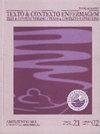基于知识转化的外科烧伤患者口渴管理的实施过程
Q2 Nursing
引用次数: 2
摘要
摘要目的:报告利用知识转化循证实践实施口渴管理模型以提高烧伤单位干预质量的途径。方法:实施经验报告,分两个阶段进行:准备;和实施/变更,两者都需要一系列步骤。结果:PDSA改进工具的实施分4个周期进行。所有国家都收集了相同的指标,但要达到的目标越来越多。考虑到所识别的障碍,采用了多种组合知识翻译策略,即:海报;理论和实践培训课程,个人或团体;视频;动力学;音乐;标志开发,以实现可见性;审核与反馈;以及说教式和图解式的临床协议。结论:本报告对改善质量的循证实践干预的整个实施过程进行了报告,指出了其优缺点,证明了其有用性、必要性和创新性。这项研究可能有助于未来基于证据的实施,选择使用多方面的干预措施。本文章由计算机程序翻译,如有差异,请以英文原文为准。
PROCESS OF IMPLEMENTING THIRST MANAGEMENT IN SURGICAL BURNED PATIENTS, BASED ON KNOWLEDGE TRANSLATION
ABSTRACT Objective: to report the path taken to implement the Thirst Management Model using the Knowledge Translation Evidence-based Practice for Improving Quality intervention in a Burn unit. Method: an experience report on the implementation, which took place in two stages: Preparation; and Implementation/Change, both requiring a sequence of steps. Results: the implementation was performed in four cycles of the PDSA improvement tool. All had the same indicator collected, with increasing goals to be attained. Considering the barriers identified, multiple combined Knowledge Translation strategies were used, namely: posters; theoretical and practical training sessions, individual or in group; videos; dynamics; music; logo development for implementation visibility; audit and feedback; and didactic and illustrated clinical protocols. Conclusion: the report of the entire implementation process using the Evidence-based Practice for Improving Quality intervention, pointing out its weaknesses and strengths, proves to be useful, necessary and innovative. This study may assist in future evidence-based implementations that choose to use multifaceted interventions.
求助全文
通过发布文献求助,成功后即可免费获取论文全文。
去求助
来源期刊

Texto Contexto Enfermagem
Nursing-General Nursing
CiteScore
1.80
自引率
0.00%
发文量
85
审稿时长
>12 weeks
期刊介绍:
Texto & Contexto Enfermagem provides space for reflection and deepening of knowledge about issues of practice, teaching and research in health and nursing, at national and international levels.
The journal is published quarterly in the rolling pass or Continuous flow mode, accepting manuscripts in Portuguese, English or Spanish, in the categories original article, reflection, experience report and review. Contributions designated to the dissemination of unpublished original research results are prioritized for publication. Special issues are published at the discretion of the Board of Directors and Associate Editors. All manuscripts are published in two versions, one of which is English, aiming to cover the largest number of readers worldwide.
The editorial policy of Texto & Contexto Enfermagem is based on rigorous quality criteria for indexing and publishing (including technical and normative aspects, graphic and textual quality and excellence in scientific content); on responsibility for shared management between the Board of Directors, Editorial Board and Internal and External Editors Associates; and on the rigorous and constructive peer review, preserving the anonymity of authors and reviewers (double blinded).
 求助内容:
求助内容: 应助结果提醒方式:
应助结果提醒方式:


